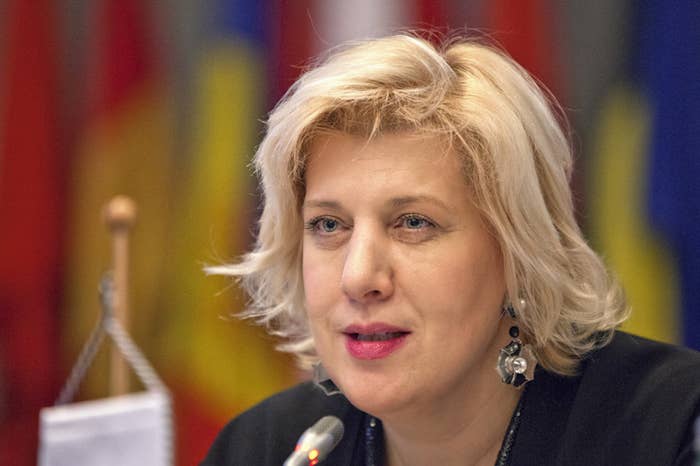
A senior official of the Organisation for Security and Co-operation in Europe (OSCE) – a 57-country grouping focused on security issues – warned on Friday that a sweeping new UK surveillance law could threaten investigative journalism.
Dunja Mijatovic, the OSCE's representative on freedom of the media since 2010, issued a statement warning that the Investigatory Powers Act – which passed parliament this week with the help of Labour MPs and peers – lacks fundamental safeguards protecting free media.
Jeremy Corbyn abstained on the bill during its passage, though his leadership campaign in the summer said he supported the bill, despite his long track record of opposing mass surveillance.
The controversial bill allows UK authorities to access internet history without a warrant and collect bulk data sets on UK and overseas citizens, and enables spy agencies to hack systems and modify software.
“This measure allows law enforcement agencies to monitor journalists’ IT and communication equipment following approval by the home secretary and without judicial oversight,” Mijatovic said in an OSCE statement. The OSCE is an intra-government grouping focused on security issues, and includes most European countries, Russia, Canada, and the USA.
“Any legislation that allows government surveillance of journalists must be narrowly drawn and include guarantees that the confidentiality of journalists’ sources is maintained,” she continued.
Mijatović's comments reflect mounting international criticism of the legislation and its powers, which are broader than the already-wide existing UK surveillance regime.
Last week, Joseph Cannataci, the UN's special rapporteur on privacy, said: "The snoopers' charter in the UK is just a bit worse than scary, isn't it?"
Cannataci also accused UK ministers and officials of a misleading PR campaign in parliament and the media in order to help the legislation through parliament. The campaign to pass the act saw the first-ever newspaper interview from a serving head of MI5, published just days before the bill's passage.
Civil society groups have also attacked the UK's new law, with some threatening legal challenges in UK and European courts.
The Don't Spy on Us coalition of civil rights groups referred to the act as "the most extreme surveillance law in our history", adding: "Don’t Spy on Us members will continue to challenge the Investigatory Powers Act and fight against mass surveillance."
Information and raw data collected through UK surveillance programmes are routinely shared with the country's "Five Eyes" intelligence partners: Australia, Canada, New Zealand, and the USA.
